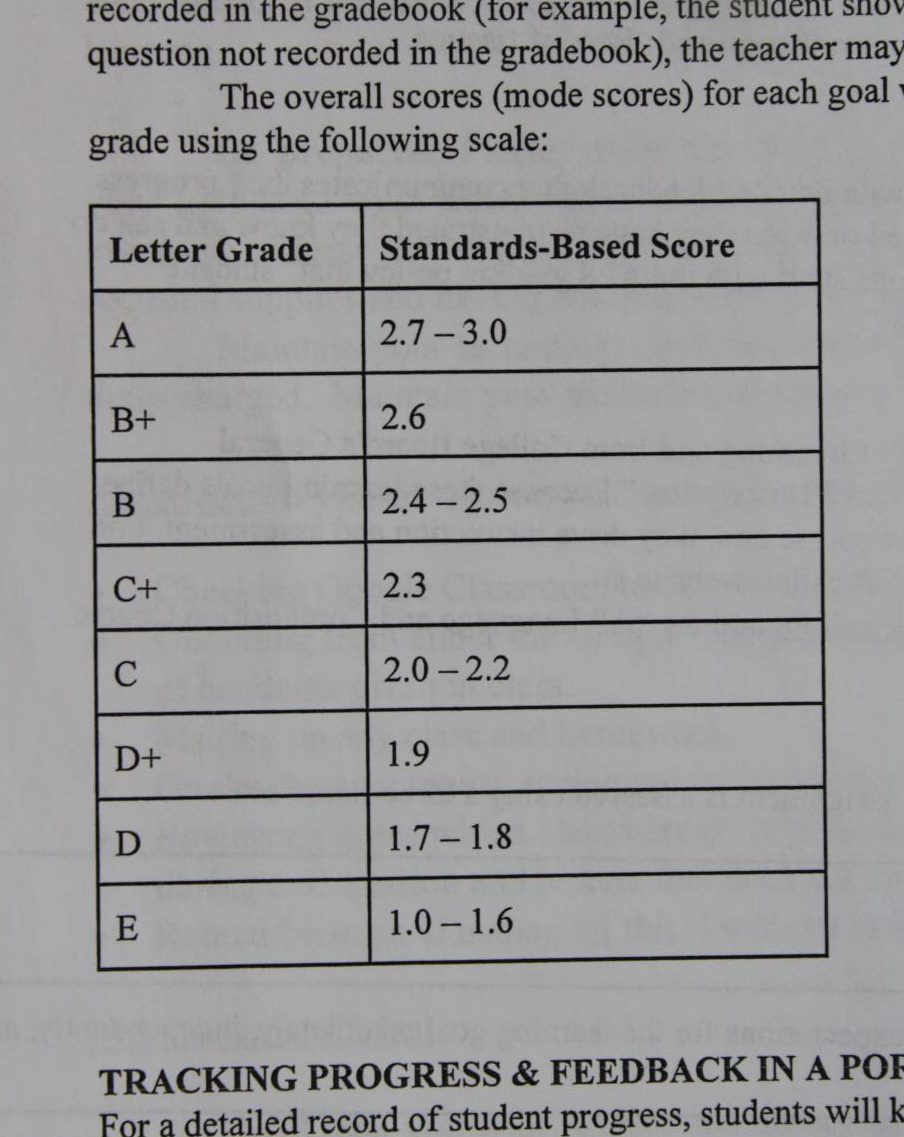Standards based grading is a form of grading where students are graded on portfolios of their work from the quarter, the teachers then give the students a single grade for the quarter rather than grading each assignment individually. Personally, I am a big fan of standards based grading. While I have only been in one class which used this form of grading, I was immediately hooked. I have found that standards based grading provides a much needed break from the constant stream of tests that have been shoved down students throats. The system allows for students to be graded on their understanding of a subject matter rather than their testing performance. In some of my classes, tests and quizzes makeup as much as 90 percent of my quarter grade, requiring high scores on every exam to maintain good grades. Here, where students aren’t taught that failure is acceptable, every test, quiz and project is a life or death situation, and it often feels as if even one bad grade could ruin our Grade Point Averages. Many students have ceaseless feelings of stress and overwhelming that only serve to damage their education and well beings.
On the other hand, standards based grading can help relieve these feelings by having students graded only on items of their choosing. In this way the system helps give favor to the students, granting them the ability to leave out potential poor test performances from their portfolios. Another added benefit of this policy is that it allows students to show their understanding of the coursework as a whole over their ability to memorize individual units, and because of this it seems it should be expanded into more classes. Obviously there could be conflicts implementing it in certain courses, especially most math classes, which rely primarily on tests as a means of showing course understanding; however, in large part, adding standards based grading would serve to improve both the learning and mental health of students.
A major argument against standards based grading is that it allows students to slack off and wait until the last minute to complete all the work for their portfolio. While this may be true in some cases, this leniency in many turn-in deadlines is a benefit of the grading system. Everyone has or will have one of days where everything seems to be happening at once; you might have three tests and a project all due and none of the teachers willing to reschedule. Those days are the absolute worst, especially when you spend all night studying and still seem to get nothing done. Standards-based grading can eliminate this, as, while putting off assignments can be risky, it is often out of necessity rather than laziness. The benefits of standards based grading far outweigh the potential costs, and it should be implemented wherever it can be in order to improve the success and education of all students.





































